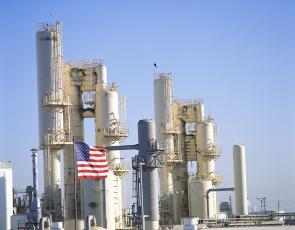Hurricane Michael, currently graded as a Category 4 storm, made landfall on the Gulf Coast today, directly hitting the Florida Panhandle and potentially impacting more than 300 miles in the region. Our priority right now is supporting our industries as they work to ensure safety and fuel supplies throughout the region.
As seen during similar hurricanes, storms of this magnitude can have an impact on the operations of local businesses and the critical infrastructure – like railways, ports, pipelines and even major roadways – that ensure the delivery of necessary goods, including critical fuels like gasoline.
As a precaution, Gulf of Mexico oil production, representing 19 percent of total output, is shut in. Affected ports, including Mississippi’s Pascagoula and Gulfport, Alabama’s Mobile and the Gulf Intracoastal Waterway remain open, however, the U.S. Coast Guard is monitoring the situation closely and directed that these ports remain under vessel traffic control measures.
There are a number of facilities, including storage terminals and refineries, in the storm’s projected pathway, and operators have spent the last few weeks and days preparing to ensure safety for their employees and the surrounding community. Specific actions are gauged on a case-by-case basis, but hurricane procedures are in place and facility operators are monitoring the storm carefully and staying in lock-step with local government officials and regulators to facilitate transparent communication and coordination.
Thanks to the resiliency of our fuel supply chain and the efficiency of U.S. refinery systems, there is no expectation at this time that U.S. consumers will feel significant cost impacts at the pump. To learn more about how gasoline prices are set – and what price gouging laws are in place.
We are watching this situation closely and will provide the necessary updates as they become available. To learn more about hurricane preparedness or how the country’s resilient fuel supply chain works, you can view our Hurricane Response Information page or visit AFPM’s midstream infrastructure report.


